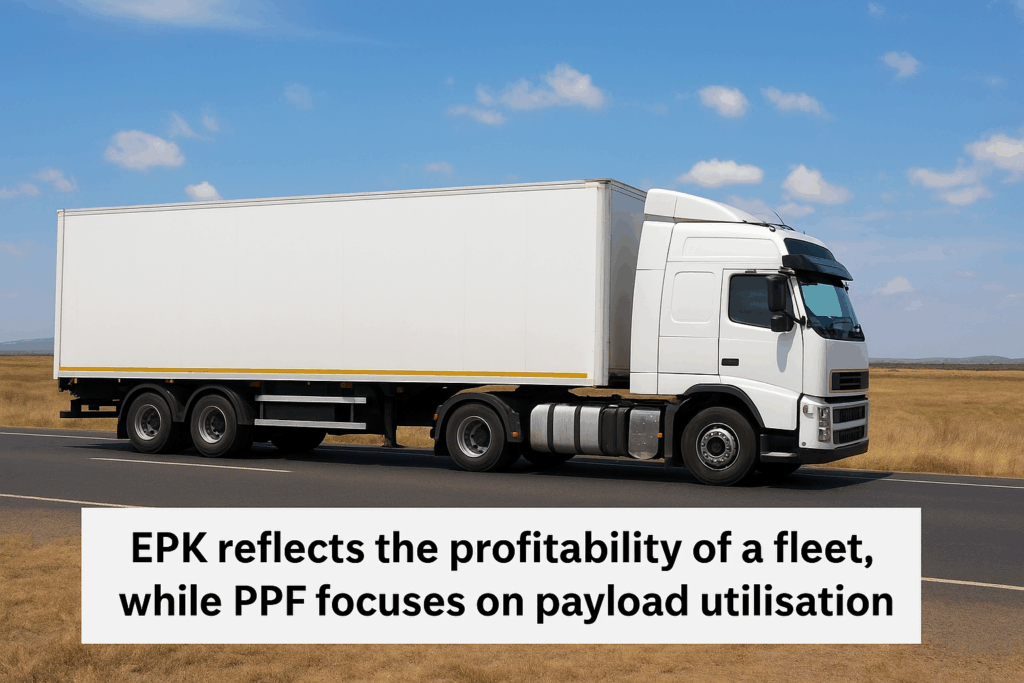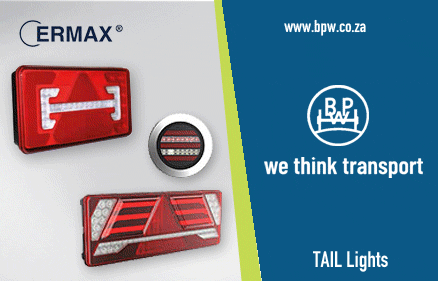Fleet operators live by their acronyms. From CPK (Cost per Kilometre) to TCO (Total Cost of Ownership) and PPF (Payload Productivity Factor), these metrics form the backbone of financial management across the industry. Now a new one is entering the fleet finance vocabulary – EPK, or Earnings per Kilometre – and, according to Banie Claasen, Managing Executive for Specialised Lending Products at Absa Business Banking, it’s just as vital for long-term sustainability.
As Claasen points out, South Africa’s 750 000 km road network is the largest in Africa and the tenth largest in the world. Road transport dominates freight movement with an 80% market share, making it the biggest subsector in transport. Yet despite this scale, operators continue to face rising input costs and tightening margins – pressures that demand sharper financial insight.
“Earnings Per Kilometre (EPK) is a profitability metric that shows how much revenue a vehicle generates per kilometre travelled,” says Claasen. “It helps operators assess whether their pricing strategies, fleet utilisation and cost management align with sustainable profitability.”
Pressures on profitability
The going rate per kilometre varies widely depending on the route, commodity and market conditions. Claasen highlights that the open and highly competitive nature of road freight keeps rates under constant pressure.
“Those who overprice are quickly replaced by cheaper competitors. However, under-pricing the kilometre rate is unsustainable in the long run too, hurting profitability,” he notes.
Over-capacity in some corridors, notably the container route between Johannesburg and Durban, has added to the challenge, pushing prices down further. Macroeconomic factors such as lower consumer demand and global trade volatility also squeeze margins across the board.
Fuel remains the single biggest factor driving Cost per Kilometre. “It is a dominant driver, accounting for up to 55% of operational costs,” says Claasen. “The recovery of the Rand against the U.S. Dollar has pushed the diesel price slightly down, to the benefit of transporters.”
Yet, the reprieve is temporary. Rising parts prices, maintenance charges, wages, insurance premiums, tolls and financing costs all feed back into the equation, affecting both CPK and ultimately EPK.
Partnership and financial alignment
For Claasen, the solution lies in partnership. “It is critical that transport operators choose the right partner that can offer financial solutions tailor-made for success in this intensely competitive and volatile industry,” he says.
“The right partner can help operators craft fleet optimisation strategies and offer transactional tools that help ease operational cost pressures, actively manage the total cost of ownership and ensure a future-fit replacement strategy.”
He adds that such partnerships can take practical form in structured finance, full maintenance lease options and efficiency measures that address CPK, TCO, PPF and now EPK in unison.
“For transporters looking to expand or modernise their fleets, long-term lending packages at reasonable interest rates assist in the sustainable management of costs,” says Claasen.
“Automated fleet management systems and fuel efficiency measures encompassing telematics, route optimisation and driver training to reduce fuel burn can also result in significant operational cost savings.”
Claasen concludes that strong financial and operational alignment will define the next chapter of road freight success: “Those seeking to make it in this industry must understand the dynamics that make it a profitable and sustainable venture in the long run.”
Editor’s comment: FleetWatch appreciates Claasen for placing EPK firmly on the financial dashboard alongside CPK and TCO. It’s a timely reminder that profitability depends not only on controlling costs but on measuring what every kilometre truly earns. In a sector as competitive and vital as road freight, that insight could well prove the difference between survival and success.
Click on photographs to enlarge





